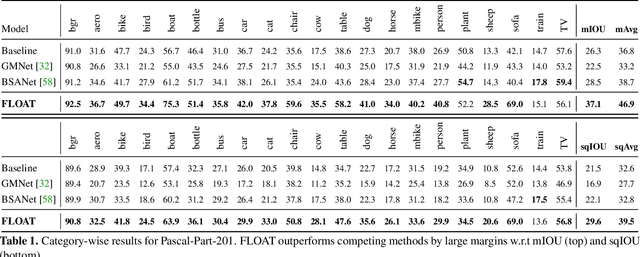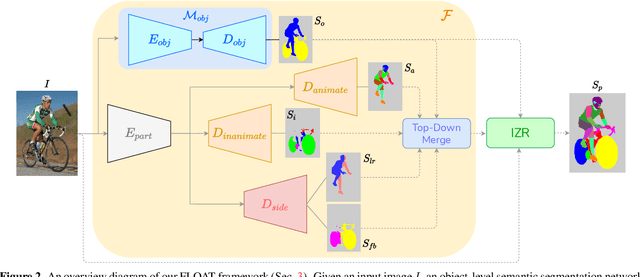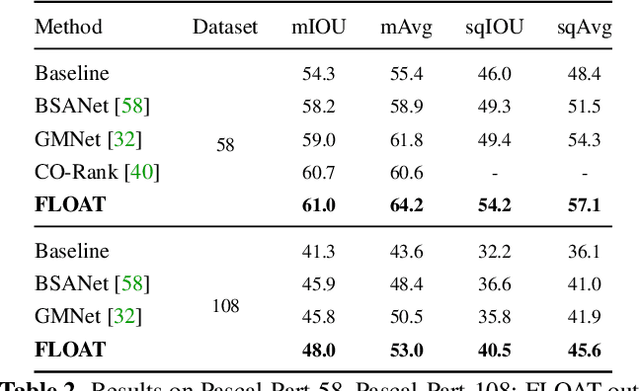Ravikiran Sarvadevabhatla
OLAF: A Plug-and-Play Framework for Enhanced Multi-object Multi-part Scene Parsing
Nov 05, 2024Abstract:Multi-object multi-part scene segmentation is a challenging task whose complexity scales exponentially with part granularity and number of scene objects. To address the task, we propose a plug-and-play approach termed OLAF. First, we augment the input (RGB) with channels containing object-based structural cues (fg/bg mask, boundary edge mask). We propose a weight adaptation technique which enables regular (RGB) pre-trained models to process the augmented (5-channel) input in a stable manner during optimization. In addition, we introduce an encoder module termed LDF to provide low-level dense feature guidance. This assists segmentation, particularly for smaller parts. OLAF enables significant mIoU gains of $\mathbf{3.3}$ (Pascal-Parts-58), $\mathbf{3.5}$ (Pascal-Parts-108) over the SOTA model. On the most challenging variant (Pascal-Parts-201), the gain is $\mathbf{4.0}$. Experimentally, we show that OLAF's broad applicability enables gains across multiple architectures (CNN, U-Net, Transformer) and datasets. The code is available at olafseg.github.io
FLOAT: Factorized Learning of Object Attributes for Improved Multi-object Multi-part Scene Parsing
Mar 30, 2022



Abstract:Multi-object multi-part scene parsing is a challenging task which requires detecting multiple object classes in a scene and segmenting the semantic parts within each object. In this paper, we propose FLOAT, a factorized label space framework for scalable multi-object multi-part parsing. Our framework involves independent dense prediction of object category and part attributes which increases scalability and reduces task complexity compared to the monolithic label space counterpart. In addition, we propose an inference-time 'zoom' refinement technique which significantly improves segmentation quality, especially for smaller objects/parts. Compared to state of the art, FLOAT obtains an absolute improvement of 2.0% for mean IOU (mIOU) and 4.8% for segmentation quality IOU (sqIOU) on the Pascal-Part-58 dataset. For the larger Pascal-Part-108 dataset, the improvements are 2.1% for mIOU and 3.9% for sqIOU. We incorporate previously excluded part attributes and other minor parts of the Pascal-Part dataset to create the most comprehensive and challenging version which we dub Pascal-Part-201. FLOAT obtains improvements of 8.6% for mIOU and 7.5% for sqIOU on the new dataset, demonstrating its parsing effectiveness across a challenging diversity of objects and parts. The code and datasets are available at floatseg.github.io.
 Add to Chrome
Add to Chrome Add to Firefox
Add to Firefox Add to Edge
Add to Edge